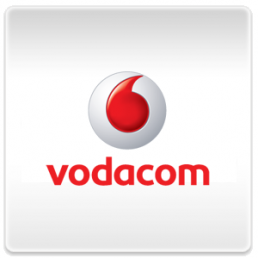Whose tweet is it anyway?
Submitted by Cerebra on Wed, 2012-04-11 16:28

With social media now an integral part of corporate communication, there’s debate over who “owns” online content and virtual followers.
Social media has successfully infiltrated the corporate world, whether reluctant C-suite executives like it or not. With over 845m people on Facebook, around 300m users on Twitter, and more than 135m registered users on LinkedIn, these are platforms that businesses cannot afford to ignore. Unsurprisingly, many companies now encourage – or in some cases even require – employees to use social media to enhance the visibility of the organization and build online relationships. Yet as employees become more adept at using these platforms, producing original content and attracting loyal audiences, the sticky issue of ownership obviously arises. Unlike traditional corporate communication, which is undoubtedly the intellectual property of an organization, who owns the rights to social media accounts is a complicated and sometimes controversial question.
“When addressing the issue of ownership you need to distinguish between corporate branded accounts and social accounts,” explains Craig Rodney, Managing Director at Cerebra Communication. “If a company or an organisation outsources the running of its corporate accounts, then the content and accounts still belong to the company.” “
“However if employees have their own accounts or are encouraged to set up personal accounts those accounts are used to promote the company or build personal brands online, which we believe is good for the employer in the long run, then those accounts belong to the individual.”
In theory that sounds pretty straightforward, but it gets thornier when an employee with an active social media account – in particular one with a large following – leaves the company. Because as any social media guru will tell you, Twitter followers and Facebook fans/friends are becoming highly prized corporate assets. While social media accounts may technically belong to the individual, companies argue that they provide the necessary platform and resources that enabled the employee to build up his/her online profile.
Popular radio personalities, for example, often have thousands of followers on Twitter, and stations risk losing these followers when DJ’s move on. “This is becoming a very heated topic,” says Rodney. “It isn’t up to me if DJ’s get to take their 100 000 followers when they move to another station, its up to the station to define it. Currently though most organisations aren’t even aware there is a decision to be made.”
Melissa Attree, a DigiPR and social consultant agrees that most companies don’t yet understand what’s at stake with regards to social media accounts and often lose out. Says Attree: “For example, when Darren Scott was a DJ at Jacaranda 94.2, he built up a popular Facebook page with thousands of fans, but that page was tied to him so the station most likely lost those fans when he left. This was a short-sighted move on Jacaranda’s behalf.”
However if an organisation consciously binds an individuals’ account to a company or brand the followers can be retained.
“Take for example the president of South Africa, Jacob Zuma,” adds Rodney, “he has a twitter account via the presidency () that’s guaranteed to have been set up and funded by and mostly managed by state funded presidential aids. With over 40,000 followers, that online “reach” belongs to the presidency not the president. If a new president joins the office there should be a healthy twitter following waiting to be used.”
The trick is to have a thorough social media policy that specifies who owns what. According to Rodney this is imperative for use internally and to guide employees on how to engage externally. “In today’s socially connected world there is no excuse not to have one” he says. “A well-written policy that’s educated will clearly benefit both the organisation and employees.”
Jessica Hubbard
Finweek, 29 March 2012
- Login to post comments


















